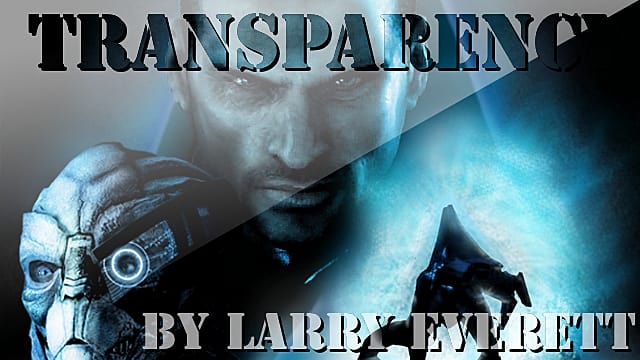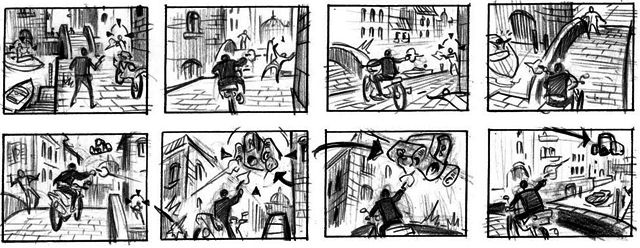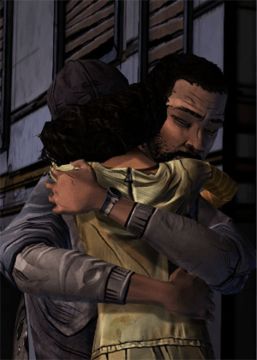Unfortunately, movies and video games cannot be compared on the same level. Not only is the audience different, but fundamentally, the way the audience consumes the entertainment is different. That’s not to say that there aren’t things that are similar or that some skills aren’t transferable, but the differences outweigh the similarities. Let’s break down a timeline of making a movie versus making a game.
Planning phase
When planning a movie, you start with a script, and many times that’s all you really need. No more real planning is necessary. Many films can get started with the production side of things as soon as the first draft of the script is done. Funny enough, many film shootings can start before the script dialogue is polished. On the gaming side, the bare minimum is a well functioning engine. Some games don’t need to have a script at all. It can just be an interesting mechanic that propels the player to keep going.
We shouldn’t take edge cases as the normal, but that should give an indication of where games start and where movies start. When you get into a more complicated movie or a more complicated game, the lines get a little blurred. However, the planning phase for games does require more thought as to how the player will interact with this world. Movies don’t have to consider that at all, because they’re a purely visual experience.
There are some things that games and movies share in the planning phase that should be noted. Both have scripts, for example. In a storytelling game like The Walking Dead by Telltale, the script will be about the size of an entire season of The Walking Dead television show. There will also be storyboards. Both movies and games are visual experiences, and storyboards help illustrate the production’s overall aesthetic. There are many other jobs that overlap, like concept artists and directors. All of these contibutors start their jobs way before the first frame of content is ever created.
Production phase
When actually creating a game and a movie, there are many differences, clearly, but let’s focus on the things that are similar. Indie video games, like indie movies, are forced to forego some of the standard production practices, so for the purposes of this article, let’s focus on AAA games and large studio film productions. Both games and movies hire actors, set designers, directors, effects artists, and motion-capture production crews. But despite film and game studios hiring all of the same people, their jobs are so different between the two that they really can’t be compared.
To illustrate the point, let’s take a look at an actor’s job from the perspective of a movie set.
Actors are usually flown out to a location, where they shoot for a number of weeks - assuming that the movie takes place in a single location. Many times, the schedule will require that the film is shot out of order, but that’s usually divided scene by scene. In a video game, it’s not uncommon for one piece of dialogue to be recorded one day, then the other parts to be recorded weeks or months later. Scenes may not be completed all at once.
This leads into the primary difference between actors in a video game versus those in a movie: the performance is different. Although vocal inflection and performance is important in a film, it’s the only thing that really matters in a video game. We do have son mo-cap performances in video games, but they are not advanced enough to capture the nuances of facial expression and body language like film does. Maybe someday, we will get there, but as of right now, we can’t. That’s why stellar vocal performances are so much more important.
There are many other aspects that are obviously different, but I think the last one I’d like to hit on is where the actors fit into the production schedule, in general. Many times in video games, the final vocal performances are not added in until last. I have been in a number of betas where the only voice-over is some intern at the game studio cold reading the script. For any film, this would be unacceptable. Even animated films bring in the voice actors in very early on.
Post production and release phase
The bottom line for video games is the player’s interactive experience. The purpose behind every video game should be the involvement of the audience. A video game is not a spectator experience. You are there; you are the main character. The story is about you. Even in a game like the Witcher 3: Wild Hunt where everyone is Geralt, the story is fundamentally yours, the player’s.
When viewing or reviewing a video game, understand that there are comparisons that can be drawn between movies and video games, but even in those comparisons, it’s still apples and pears. They might look very similar, but you have to compare the flavors separately.
I know I didn’t hit on everything, and people certainly have a difference of opinions on this subject. I’d like to read your comments below.



